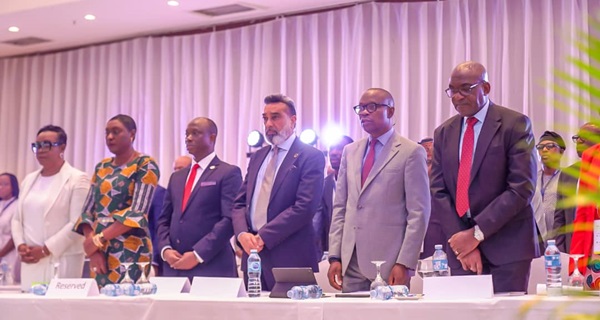
The Federal Government has reaffirmed its commitment to achieving Universal Health Coverage (UHC) by 2030 and is urging African governments, private sector actors and international development partners to scale up investments and innovation in the health sector.
The Minister of State for Health and Social Welfare, Dr. Iziaq Salako made this call on Wednesday at the African Health Business (AHB) Symposium in Abuja.
The symposium, themed “Leveraging Innovation to Advance Universal Health Coverage,” brought together health leaders, investors and stakeholders from across Africa to explore strategies for expanding healthcare access.
Salako noted that Africa must act “10 times faster” to meet the UHC targets, referencing World Health Organisation (WHO) data that showed Africa’s Service Coverage Index increased by only one point per year, from 23 in 2000 to 44 in 2021.
“Health is everything, and nothing can be more important than a mechanism that guarantees healthcare access for everybody,” he said.
He highlighted Nigeria’s reforms under President Bola Ahmed Tinubu’s ‘Renewed Hope’ agenda, particularly the Health Sector Renewal Investment Initiative. The initiative includes key policies such as the National Health Insurance Authority (NHIA) Act, the Basic Health Care Provision Fund (BHCPF), and the planned upgrade of 17,000 primary healthcare centres by 2027.
According to Salako, health insurance coverage has grown by 15 per cent, with health insurance agencies now operational in all 36 states and the FCT.
He also pointed to the Presidential Initiative for Unlocking the Healthcare Value Chain (PVAC), designed to strengthen local pharmaceutical production.
“An executive order by President Tinubu has removed tariffs and VAT on pharmaceutical raw materials to encourage affordability and reduce dependence on imports,” he explained.
However, he acknowledged that Nigeria still faces significant challenges, including underfunding, infrastructural deficits, healthcare worker shortages and high out-of-pocket payments.
“We aim to build a health system that earns public trust, leaves no one behind and leverages both public and private sector resources,” he said.
He outlined five priority areas: sustainable financing through domestic resource mobilisation, expanded digital health adoption (including AI, telemedicine, and electronic records), strengthened pharmaceutical and diagnostics value chains, climate-resilient health systems and multi-sectoral collaboration.
Salako emphasised that health must be seen not as a cost, but as a strategic investment in national development.
“Let us leave this symposium not just with ideas, but with partnerships and policies that work. Nigeria is open for business and ready to collaborate with all stakeholders,” he said.
The symposium is expected to catalyse actionable commitments and partnerships that move Africa closer to achieving inclusive, affordable, and resilient healthcare for all.

